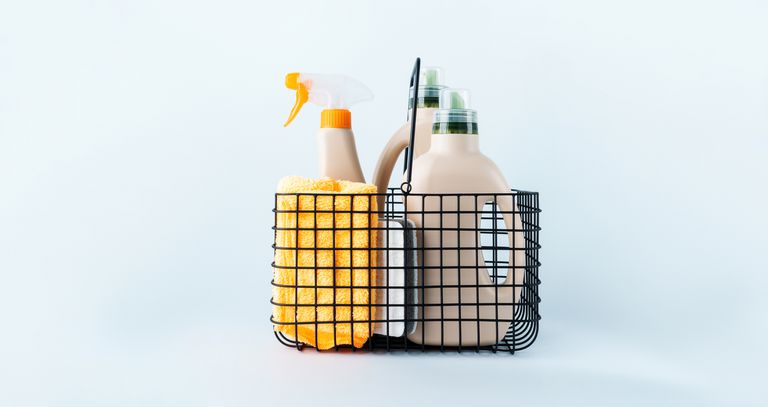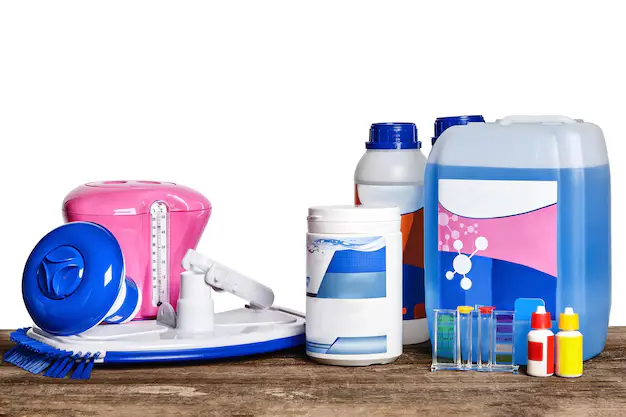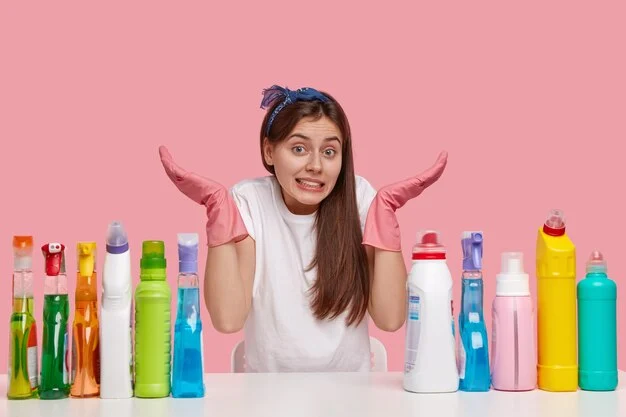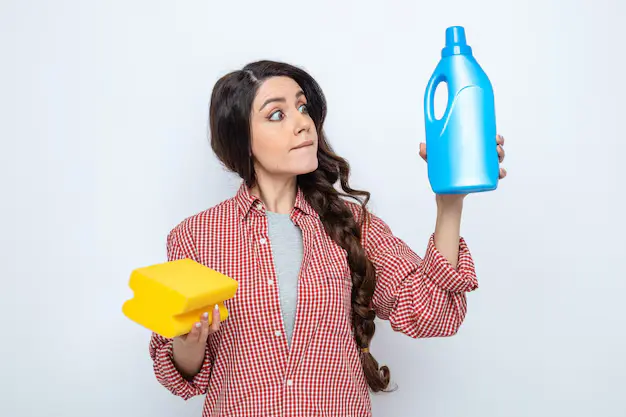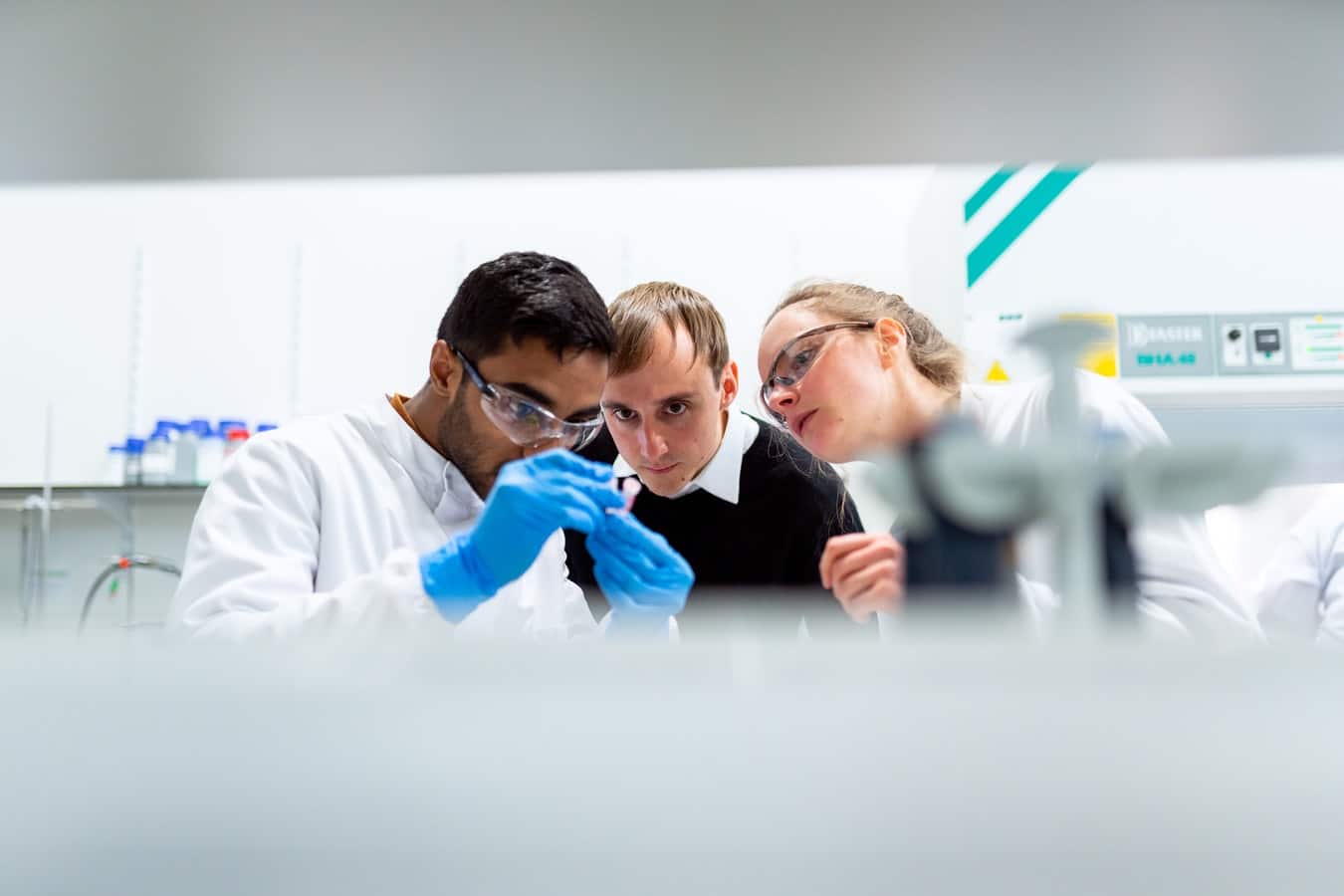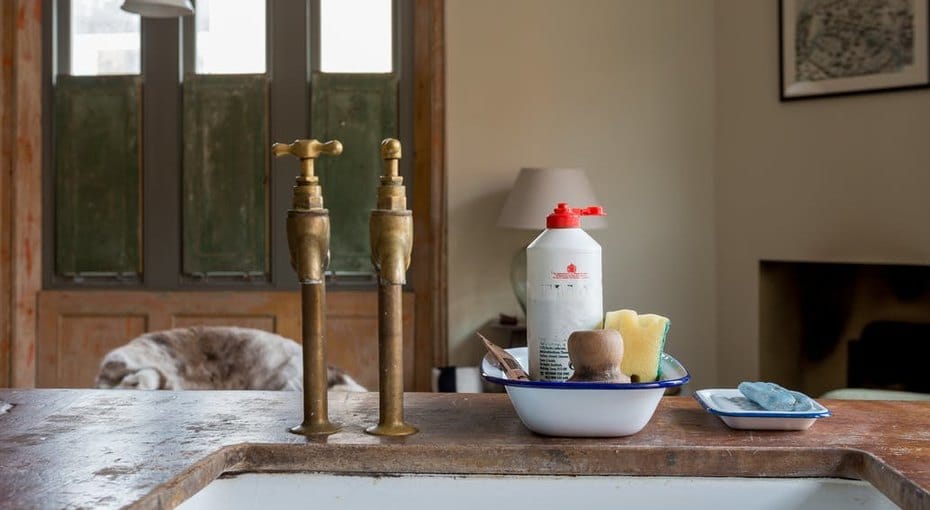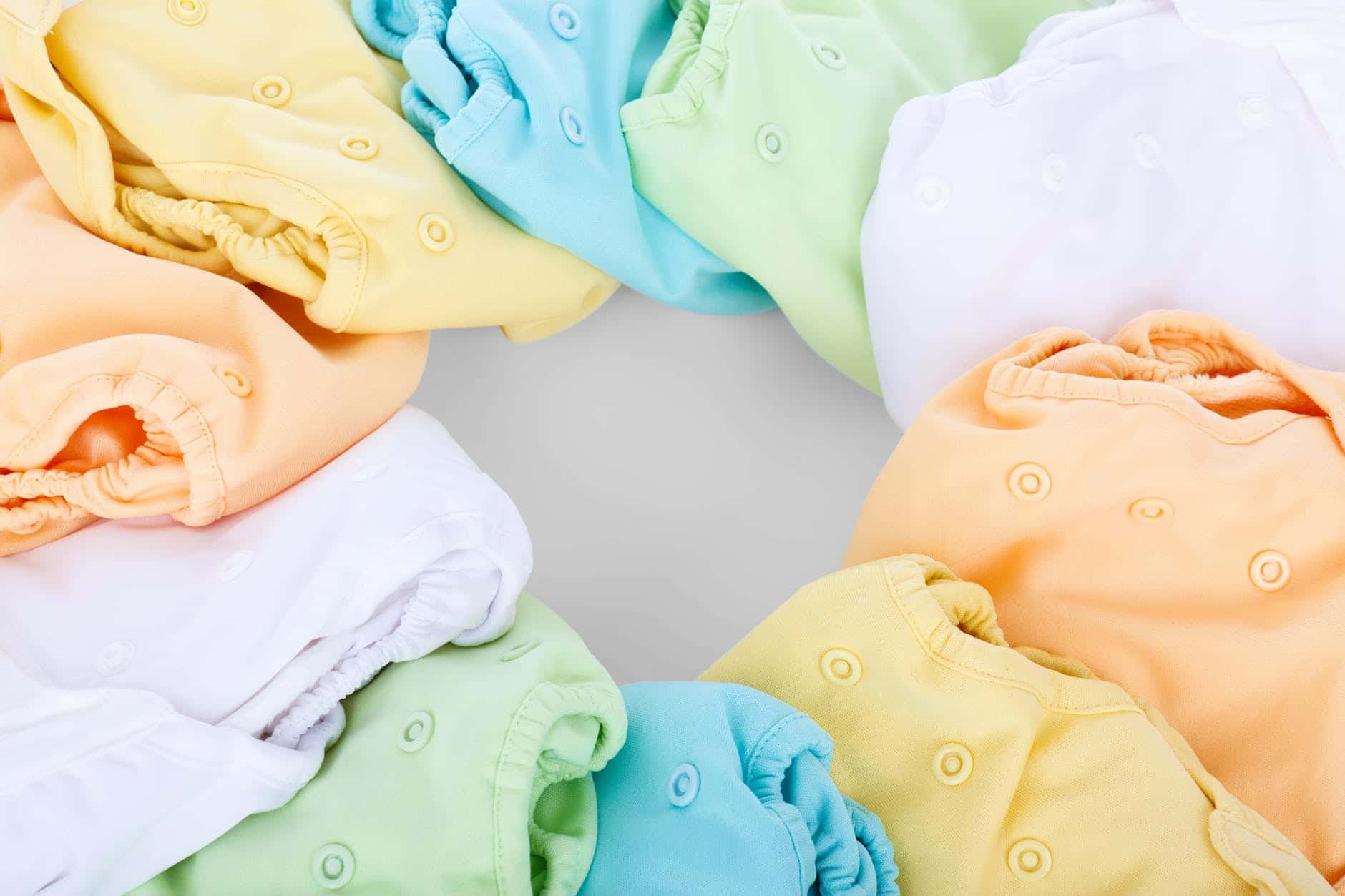Many people try to experiment with home cleaners while cleaning.
But if you are not well-versed in chemistry, it is not worth risking it. And it’s not just about damaging furniture or clothing. In some cases, such experiments can cause a serious health risk.
Some modern housewives, inspired by the innovative life hacks, try to creatively approach the process of cleaning. They are mixing various detergents and cleaners.
Many people mistakenly believe that if some agents are mixed, then the effect can be enhanced.
Chemical Properties of Bleach and Hydrogen Peroxide
Often used for cleaning and sterilizing, bleach and hydrogen peroxide are strong oxidizers. Usually composed of sodium hypochlorite (NaOCl), bleach causes toxic compounds to form by reacting with acids or ammonia releasing chlorine gas. Strong bleaching and disinfecting agent hydrogen peroxide (H₂O₂) is a colourless liquid that breaks down into water and oxygen.
Together, these compounds can react to create dangerous compounds. Combining bleach with hydrogen peroxide, for example, can produce heat and oxygen gas, which might dangerously create pressure inside closed containers. To guarantee safe use of these cleaning agents and to prevent inadvertent exposure to dangerous reactions, one must first understand these chemical features.
What is the risk?
In reality, it works differently. Most cleaners are reasonably safe to use for their intended purpose.
But when mixed with other products, there is a relatively high risk of forming a chemical compound that will damage the surface to be cleaned. Moreover, when some agents are combined, a chemical reaction with the formation of toxic fumes can start.
This article will tell you what happens when you mix bleach and hydrogen peroxide with other agents.
Bleach and Hydrogen Peroxide Reaction
These means are affordable, effective, and very often used in everyday life. But is it safe to mix them with other chemicals?
On the Internet, there are many useful tips for cleaning your home with homemade products. They literally predict amazing results. However, not all homemade products are really useful, and many of them are even dangerous to health.
If the hands and respiratory system remain may intact, then you can severely damage the treated surfaces. If you use some substances together (intentionally or accidentally), this can lead to unpleasant consequences.
What are the Methods do You Use for Cleaning?
Here are the main methods people generally use for cleaning:
- Bleach and Ammonia: 24.44%
- Baking Soda and Vinegar: 32.84%
- Vinegar and Bleach: 11.05%
- Vinegar and Hydrogen Peroxide: 31.67%
So always remember to avoid mixing the above components.
1. Bleach and Ammonia
In any case, the experiment will be unfavorable for health. Bleach and ammonia tend to emit toxic gas. Inhaling such fumes can harm the respiratory system. Moreover, an increased concentration of ammonia and chloramines, which are contained in the bleach, can lead to explosive reactions.
Do not risk your health
2. Baking Soda and Vinegar
Separately, these two agents are good for cleaning heavily contaminated places and plaque. But together they are practically useless, and sometimes even dangerous. Sodium bicarbonate is a weak compound, and vinegar is the acid that destroys it. When connected, they have the ability to neutralize each other. Mixing these components in small, closed containers may result in explosion or poisoning by caustic vapors when opened.
3. Vinegar and Bleach
Vinegar is the best and cheapest substance for cleaning. But it is the worst idea to mix it with bleach. Such an unsafe combination of evaporates acid gasses, which are very harmful to the respiratory tract and lungs, and also literally corrode the eyes.
4. Vinegar and Hydrogen Peroxide
If you combine hydrogen peroxide and vinegar, you will get a chemical product with a high concentration and a strong irritating effect on many human organs. It corrodes the skin, eyes, nose, throat and harms the lungs. No cleaning is worth such a risk.
5. Alcohol and Bleach
This combination produces chloroform and hydrochloric acid. Even if you just inhale it several times, such unpleasant symptoms as dizziness and even fainting immediately appear.
For What Purposes do You Usually Use Hydrogen Peroxide?
Here are the reasons people use Hydrogen Peroxide:
- For Bleaching Clothes: 42.67%
- For The Treatment of the Oral Cavity: 40.44%
- For Sore Throat: 9.33%
- For Relieves Neck Pain: 7.56%
When these chemicals are together, they can damage many of the human internal organs: the nervous system, lungs, liver, kidneys, and skin.
Cleaning Products From Different Manufacturers
Do many of us have sufficient knowledge of chemistry to predict how certain ingredients will interact? Therefore, it is better to always avoid a combination of several cleaning products, especially if they are meant for different purposes.
Of course, you can read on the label what they consist of, but is it worth the risk for the dubious effect?
Safe Alternatives for Cleaning and Disinfection
Mixing Bleach And Other Components
It is better not to mix bleach with any cleaning products.
These include, for example, dishwashing detergents, furniture polishes, and glass cleaning products. You should avoid mixing bleach with peroxide. All such combinations cause the release of chlorine gasses, which are harmful to the respiratory tract and to our eyes.
Bleach and Peroxide
Each housewife should have these substances at home. After all, it is proved that they are reliable assistants.
Bleach with hydrogen peroxide should be used with care and separately. But when properly treated, these chemicals are very useful. Let’s consider the properties more detailed.
Hydrogen Peroxide Bleaching and Other Cases of Use
It is considered to be a completely safe and natural antiseptic. With the solution of these inexpensive but effective items, you can not only disinfect wounds but also use it for non-traditional purposes.
- It whitens clothes. Rinse white linen or towels in water with a glass of hydrogen peroxide. This will help things not turn yellow over time. Peroxide also removes complex stains. How to bleach with hydrogen peroxide? Apply a little over the stain, leave it for a minute, brush it well and rinse properly.
- Peroxide is a great skin whitener. It can be used as a lotion. You can wipe your face with a weak solution using a cotton swab. However, it should be noted that this remedy is recommended for oily skin.
- It is good for the treatment of the oral cavity. To get rid of sores and ulcers in your mouth, take 10 ml of peroxide in your mouth and hold for 5 minutes, but do not swallow.
- It also helps whiten your teeth. Use peroxide instead of store mouthwash. It can be added to your home-made toothpaste.
- It cures my sore throat. For pain relief, mix 1/2 tbsp. of warm water with 1/4 tbsp. of hydrogen peroxide and rinse your throat well. It is also a great prevention of colds as peroxide kills pathogenic bacteria.
- It relieves neck pain. It is a great remedy for those who have been sitting in an uncomfortable pose for a long time. If you have a bruised neck, have unpleasant sensations in your muscles, take a handkerchief and moisten it with hydrogen peroxide, apply it to your neck, and put a towel on top. Leave this compress for 10-20 minutes. It warms the muscles well and relieves pain and tension.
- It facilitates housekeeping. Peroxide eliminates germs. Apply a little bit of the means to a cleaning cloth or add it to a store cleaner.
Where to Use Bleach?
Bleach can be used to remove stains on clothes or when washing. It is used to disinfect surfaces, especially in the kitchen and bathroom, you can remove mold and mildew with it. Bleach is a good disinfectant for bed sheets and surfaces, it is efficient to disinfect surfaces for cooking. Chlorine is used in pools to keep the water clean and raise the pH level. And in much lower concentrations they use it in the municipal water supply to destroy harmful organisms.
Since chlorine is a strong oxidizing agent, it is dangerous if used improperly. You should avoid mixing chlorine bleach with any other things because it can react with them and form very dangerous substances.
Bottom Line
Strong cleaners, hydrogen peroxide and bleach should never be combined with other chemicals including ammonia, vinegar, or rubbing alcohol. Such combinations can cause harmful reactions or toxic fumes, so affecting the respiratory system, eyes, and skin’s health.
Use these products individually always, and follow safety guidelines to prevent accidental harm. Careful handling guarantees its effectiveness and maintains the cleanliness of your house. Keep safety top priority when cleaning, above experimentation.
Frequently Asked Questions
Hydrogen peroxide and bleach are widely used for cleaning homes and they have proved themselves to be effective means for that. However, people often decide to unite several cleaning means believing that it will increase their power.
Unfortunately, as all the cleaning products are chemicals, many of them can’t be mixed together, otherwise, they may be dangerous to your health!
Below you will find the most essential don’ts regarding the use of hydrogen peroxide and bleach.
Can bleach and vinegar be mixed?
If you mix bleach and vinegar, this blend will be releasing toxic chlorine gasses that are very harmful to our eyes and respiratory system causing burns of the eyes and lungs. Actually, any weak acid will work like that when being mixed with bleach.
Is bleach flammable?
On its own, bleach is not a flammable liquid. However, if mixed with ammonia or acetylene, it will become explosive. That’s why I always keep it separate from other chemicals in the house so that their vapors don’t mix together.
Do bleach and baking soda work together?
Yes, they do. These two are good for whitening your clothes as bleach destroys blots and baking soda brings freshness and kills the strong bleach smell. Half a cup of each mixed together will work very well.
Is it ok to mix hydrogen peroxide and vinegar?
This mixture ends up in a peracetic acid that is very destroying and irritating to eyes, skin, nose, lungs, and throat.
What things should you never mix with bleach?
Even though bleach is a useful thing to have at home, you must remember what products must never be mixed with it. Don’t mix bleach with peroxide, ammonia and rubbing alcohol as these mixtures evaporate gasses that are very harmful to our eyes and the whole respiratory system in general and may cause bad burns or skin irritation.

